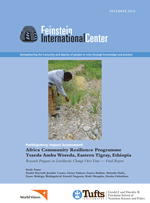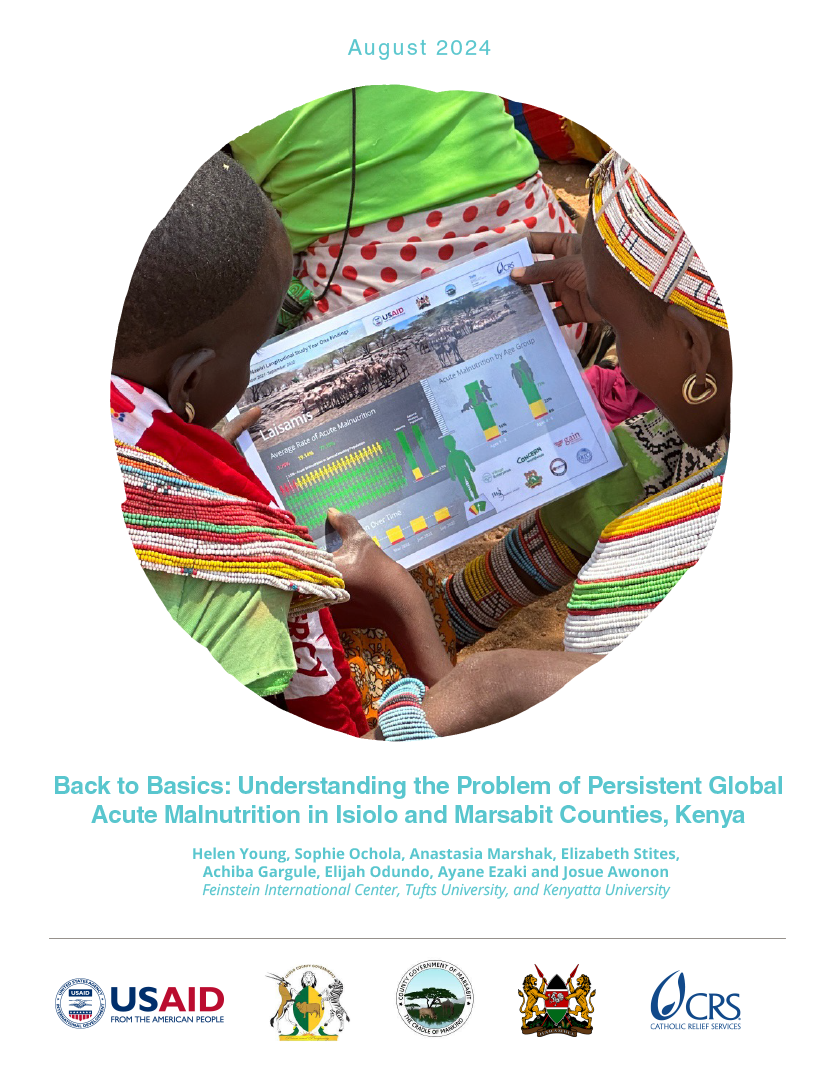Disaster Risk Reduction (DRR) programs encompass many different kinds of activities, but share the fundamental objective of enhancing the capacity of vulnerable communities to identify, reduce and manage risk, whether it be at the local, regional or national level. Ethiopia is one of the most food-insecure countries in the world, but only recently has the food security problem begun to be understood in terms of a complete analysis of livelihoods, rather than simply a food supply problem. New disaster risk management policies in Ethiopia address this issue nation-wide.
The Africa Community Resilience Project (ACRP) was designed by World Vision International in line with the Hyogo Framework for Action as a blueprint to creating resilient communities. The project is research-based and will build capacity for improving resilience through disaster risk management programming and mainstreaming in one area of Tigray Region. Tufts University was engaged to conduct the research and programmatic learning side of the program.
This final report covers the last round of the participatory impact assessment conducted in Tsaeda Amba Woreda in Eastern Tigray in July 2010, and summarizes findings from both rounds of the household survey. These results demonstrate the impact of the drought and the high price of food in 2008 and 2009. Results also demonstrate the impact of ACRP in terms of capacity building, establishing and consolidating Community Disaster Preparedness Committee and mainstreaming Disaster Risk Reduction into on-going programs.







